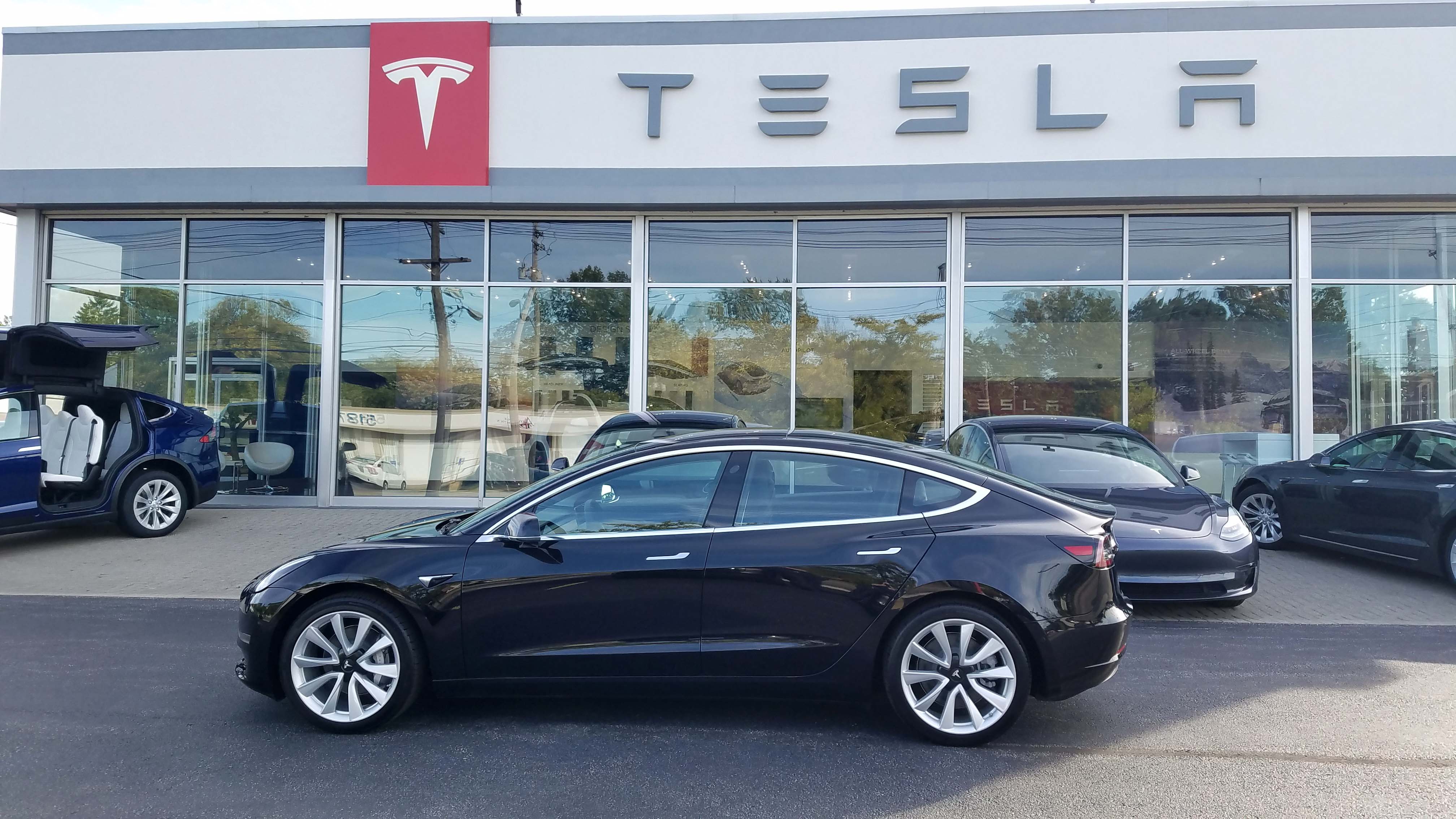Payne: Tesla opens new Toledo center as it fights Michigan ban
 Henry Payne
Henry Payne
Banned from selling cars in Michigan, Tesla Inc. opened a new Toledo service center on the state’s southern border this month. The move comes as the Palo Alto-based electric car-maker tries to accommodate its growing Midwest customer base while battling Michigan in a closely watched court case.
Michigan has built a regulatory wall against manufacturer-owned dealerships, one of 16 states to do so. Other manufacturers long ago accepted so-called state franchise laws that require automobiles be sold and serviced through independent dealerships.
But as the brash new kid on the block, Tesla is trying to reinvent customer service with online ordering and manufacturer-owned stores like fellow Silicon Valley tech giant Apple. The effort has been met with a cold shoulder from states like Michigan.
Under pressure from the auto dealer lobby, the Snyder administration in 2014 signed into law an amendment strengthening the manufacturer-owned dealer ban. When Tesla applied for its own, Detroit-based service center in 2016, it was rejected under the law. Tesla filed suit claiming “its rights under the United States Constitution to sell and service its critically-acclaimed, all-electric vehicles at Tesla-owned facilities in the State of Michigan.”

The case is still pending in federal court in Michigan's western district.
In the meantime, Tesla has pursued a strategy of serving Michiganians via Ohio which allows a limited number of manufacturer-owned dealers under its own franchise law. Tesla serviced customers through its Chicago service centers early this decade when it introduced its $70,000 Tesla Model S sedan.
But the service and delivery has grown more urgent in the last two years with the introduction of the $40,000 Tesla Model 3 which has quickly become one of the best-selling luxury cars in America.
Tesla's 23,000-square-foot Cleveland dealership and service center opened in 2014 and has become the funnel for Detroit-area deliveries. Tesla has augmented it with the new Toledo location, and by flooding Michigan with Mobile Units — mechanics who pay service visits to customers at their homes. The Palo Alto-based company even skirted Michigan law by opening a “gallery” store in the Somerset mall to display its products — though its employees are not allowed to pitch customers.
The Tesla v. Michigan suit is seen as a national referendum on long-standing state franchise laws and has provoked intense debate. Supporters of Michigan's law say it’s necessary for consumer protection even as opponents call it protectionist and claim it denies Michigan sales tax revenue.
“Tesla's 'Apple' model doesn't translate to autos," says economist Patrick Anderson whose East Lansing-based consulting firm works with dealers, manufacturers, and suppliers. "The economic rationale for these laws include ensuring owners get recall and warranty repairs in a timely manner. Auto dealers have responsibility for recalls, emissions regulations, and tracking VIN numbers. Tesla doesn't have the financial resources to keep up with those demands."

The libertarian Cato Institute weighed in on the other side: “In recent years, states and localities have worked to undermine beneficial economic disruption by using state and local laws and regulations to bar startup companies from competing. Trailblazers such as Tesla, Uber, Lyft, and Airbnb are finding market entry barred in places as diverse as Michigan (and) New York.”
Tesla says its Toledo store is necessary as it sees more new owners in Michigan. The company competes against some of the most acclaimed, service-friendly brands in the industry like Lexus and Mercedes-Benz, and it is keen to provide customers with convenient service.
The Toledo location is one of roughly 20 new service centers opened so far this year. Along with maintaining its own supercharging network, dealership overhead has been a big cash burn for a company that has struggled to make profit.
The Tesla formula has been undeniably successful as it has dominated electric vehicle sales in the United States. But with luxury EVs from formidable brands like Audi and Porsche coming to the market this year — in addition to cheaper alternatives like the Chevy Bolt EV and Nissan Leaf — Tesla has competition like never before.
“There’s a good reason every successful manufacturer of vehicles sold in America relies on independent dealers to sell and service them,” says economist Anderson. “The dealers buy the cars and parts from the factory — and pay for the advertising and the buildings at which cars are sold. Dealers could buy enough cars and parts to make Tesla do the one thing they have never been able to do: turn a profit.”
Tesla’s exclusive supercharging network, a key to its success, is also being challenged. Electrify America, a $2 billion national network of fast chargers funded by Volkswagen AG as penance for its costly "Dieselgate" emissions scandal, is starting to penetrate Michigan.
The network has begun to sprout nodes with super chargers that parallel the capabilities of Tesla’s grid. For example, an Electrify America charging station near Kalamazoo has 150 kW capability that boasts 125 miles of range gained in just 15 minutes. Where Tesla’s Kalmazoo charger s only compatible with its products, Electrify America stations are open to all EVs from Tesla to Chevy to Audi.
Tesla has battled in court to win the right to sell in Utah and Virginia as well. The Virginia case is pending while Tesla lost in Utah, only to have the legislature there reverse course and allow the company to sell in state.
A ruling in the closely-watched Michigan case was recently postponed. Some insiders speculate that — with the recent change in Lansing from a business-minded Republican to a green Democrat attorney general — the state may be friendlier to Tesla.
The battle to address a cobweb of franchise laws in all 50 states is formidable, however, and even Musk has suggested that Tesla will eventually have to partner with dealers.
“Before considering taking on any franchised dealers, we first need to establish a solid base with our own stores,” he told the Automotive News World Congress in 2016. “I just think it’s very important to have our destiny in our hands in the early stage. Then we can transition later if we can find the right partner.”
Henry Payne is auto critic for The Detroit News. Find him at hpayne@detroitnews.com or Twitter @HenryEPayne. Catch “Car Radio with Henry Payne” from noon-2 p.m. Saturdays on 910 AM Superstation.